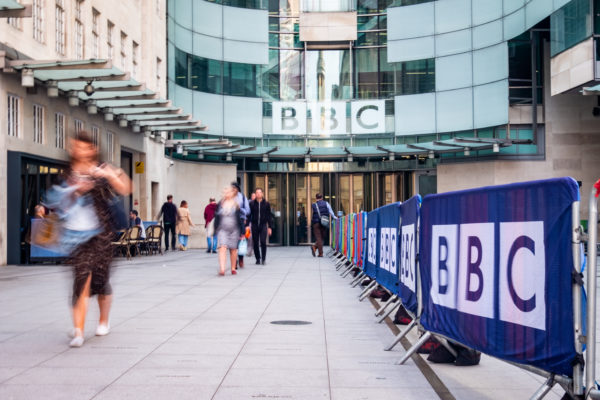How the scrapping of the BBC’s licence fee might impact UK media
Depending on your political persuasion it is either a bold move that will free British media from an antiquated funding model and open up all manner of exciting commercial opportunities or a cynical ploy from an embattled government to move the spotlight away from its other issues.
Nevertheless, BBC executives started this week grappling with huge question marks hanging over the future of the corporation.
The government is insisting that the licence will not be increased in the next two years and that a new funding model will be in place by 2027.
It’s a move that the government believes will be popular with voters. A recent poll by Savanta ComRes, admittedly for the Defund The BBC campaign group, found that almost two-thirds of those questioned wanted to scrap the licence fee.
At the same time, there remains a possibility that a change of government before 2027 could put the brakes on the reorganisation. Yet given the time-frame the momentum may mean that plans would be too far advanced to be shelved.
So what are the options for funding the BBC and how might they impact UK publishers and media companies?
Advertising – One obvious option is to introduce advertising across all BBC media. It already sells advertising against some of its properties that target audiences outside the UK.
The problem is there is clearly not enough advertising revenue to fund the corporation in any meaningful way. It would have to be part of a series of revenue streams and even then it would undermine what over the years many have seen as a core feature of the corporation.
Subscriptions – Another option might be to follow companies like Netflix and charge a subscription fee. This is an option that is exciting some of the Conservative party and in particular the culture secretary Nadine Dorries. There are many potential downsides to this. While there is some headline content that people may be eager to pay for, there is a significant amount that is targeting niche audiences and could not be funded in this way. It would also undermine the concept of the corporation’s content being freely available.
Levy money via broadband connections – Another option is to add a monthly fee to each broadband connection and use this to fund the corporation. The issue here is that governments have been committed to the theory that access to internet connection should be available relatively cheaply to all, and this might mean less well-off families will struggle to afford it. Also within a few years, it could be that most people access the internet via mobile rather than broadband connections.
Direct government funding – It would be feasible for the government to simply supply the funding for the BBC directly or even raise that money via a special tax. While this works successfully in other countries (Sweden and Australia) neither is likely to be popular with Conservative politicians.
What seems most likely to emerge is a halfway house in which important public service elements of the BBC are ring-fenced and funded and then the rest are left to operate commercially taking on the likes of the global content powers like Netflix, Disney and Amazon.
So how might this impact British and indeed global media and magazine companies?
Whichever solution emerges there are likely to be pros and cons. There is no doubt that historically the existence of the BBC has put the brakes on the growth of media companies in the UK. They are competing with a hugely funded entity with massive credibility. On a very basic level in the digital world this means that there are fewer eyeballs to go round.
When the corporation’s Director-General Mark Thompson unveiled his vision in the mid-noughties Rupert Murdoch described the corporation’s ambition as chilling. The BBC has been forced to roll back from much of that vision as the years have passed largely through financial constrictions imposed since 2010. Yet there is clear evidence that the corporation’s huge reach has been a reason why so few British digital media companies have emerged in the past 20 years.
If a slimmed-down corporation emerges that may be more opportunities for existing companies as well as entrepreneurs to mine significant niches.
The downside is that they may be competing with the BBC for advertising revenue, which could have a huge impact on existing publishing companies.
Conversely working in the theory that a rising tide floats all boats, a commercial BBC that raises money via subscriptions could help create a culture in which paid-for content in the UK thrives. Though at the same time it could argued that if the BBC hoovers up significant cash from consumers they might have less to spend on other media brands.,
It is too early to come to any conclusions about the future of the corporation and how it might impact publishers. But British media companies will need to keep a close eye on developments in the coming days and may indeed tweak business plans to ensure that the changes don’t impact negatively on their businesses.
Main Image: Shutterstock/William Barton









